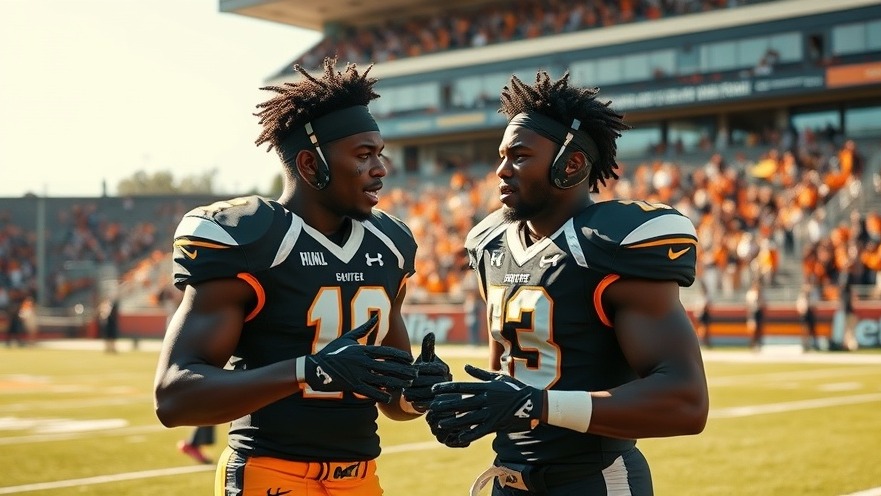
Sanders' Bold Defense Amid Criticism
Deion Sanders, the head football coach at Jackson State University and a former NFL superstar, recently voiced his frustrations over critics questioning his son, Shedeur Sanders' potential in the upcoming NFL Draft. As talk swirls around Shedeur's stock in the draft seemingly dropping, critiques have surfaced suggesting that his father's influence may have affected his performance. However, Sanders is adamant that the evaluations are unfair and rooted in bias against historically black colleges and universities (HBCUs).
The Importance of Context in Draft Evaluations
Critics often overlook the context surrounding player evaluations. Historically, players from HBCUs like Jackson State have been marginalized in the NFL Draft conversations due to systemic biases within the league. Sanders' rallying cry is not just about Shedeur; it's about changing the narrative for all HBCU players. By condemning the pressure and prejudicial standards, he emphasizes that talent should be the primary criteria for evaluation, not the institution's historical reputation.
Perception vs. Reality: Analyzing QBs in the Draft
The QB position is especially scrutinized leading up to drafts, as franchises search for game-changers. Like Shedeur, preseason favorites often meet with rapid evaluations that can swing drastically leading into the draft. Comparatively, quarterbacks from elite schools often receive more favorable assessments, with their performances being perceived through a different lens. In fact, as recent statistics from NFL Draft analysts show, players like Shedeur often need to exceed perception dramatically to compete in draft positioning against their counterparts from power conferences.
Shifting Dynamics in College Football and Its Impact on Draft Prospects
As college football evolves, the development and recruitment of players from smaller programs are gaining attention. Highlighting exemplary performances from HBCUs in recent seasons shows the changing landscape where talent is found. With the NFL becoming more inclusive, recent high-profile quarterbacks from non-traditional schools have successfully transitioned to professional stardom, providing evidence that talent can emerge from any corner of the nation.
What It Means for Shedeur and HBCU Athletes
Shedeur's journey to the NFL may not just determine his future but could reshape the opportunities available for high school athletes from underrepresented institutions. His success or failure is viewed as a barometer for the potential of future HBCU quarterbacks and other players aiming for the league. Sanders embodies resilience, stating, "We will rise above the noise, and I believe Shedeur will shine. ” This sentiment resonates with many young athletes who look to break down barriers within the sports world.
Parting Thoughts: Embrace The Evolution of Football Culture
In light of the present criticisms and challenges, the demand for equitable evaluation of players' skills remains a prominent issue in sports. With Sanders leading the charge, the focus should shift toward identifying true talent, irrespective of a player's background. Shedeur's story embodies the struggles and triumphs of countless athletes fighting to earn respect in a system that often undervalues them. As the NFL Draft approaches, fans and analysts alike will be watching closely to see how this unfolding narrative plays out.
 Add Element
Add Element  Add Row
Add Row 



 Add Row
Add Row  Add
Add 


Write A Comment